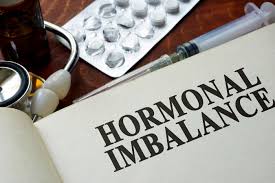
Men with Hormonal Imbalances Face Elevated Mortality Risks, Study Finds
A recent review, published online in the Annals of Internal Medicine on May 14, sheds light on the increased risk of all-cause mortality for men with specific hormonal profiles. Conducted by Bu B. Yeap, M.B.B.S., Ph.D., from the University of Western Australia in Perth, along with colleagues, the review aimed to explore the associations between sex hormones and mortality, particularly focusing on cardiovascular disease (CVD).
Pooling data from nine studies, encompassing a total of 255,830 participant-years, and drawing summary estimates from 11 studies involving 24,109 participants, the researchers unearthed significant insights.
The findings highlighted that men with baseline testosterone levels below 7.4 nmol/L, elevated luteinizing hormone concentrations surpassing 10 IU/L, or markedly low estradiol levels below 5.1 pmol/L faced heightened risks of all-cause mortality. Moreover, individuals with testosterone levels dipping below 5.3 nmol/L exhibited a higher risk of mortality specifically attributed to CVD.
The study also noted a correlation between lower sex hormone-binding globulin concentration and reduced risks of both all-cause and CVD mortality, with adjusted hazard ratios of 0.85 and 0.81, respectively, for the lowest quintile compared to the highest. Conversely, men with lower baseline dihydrotestosterone concentrations faced elevated risks of both all-cause and CVD mortality, with adjusted hazard ratios of 1.19 and 1.29, respectively, compared to those in the highest quintile. Notably, the risk further escalated with dihydrotestosterone concentrations exceeding 2.45 nmol/L.
Furthermore, the research underscored an increased risk of incident CVD events among men with dihydrotestosterone concentrations plummeting below 0.59 nmol/L.
"The testosterone concentration below which men had a higher risk for all-cause mortality was 7.4 nmol/L (213 ng/dL)," noted the authors. "This adds to information on reference ranges based on distributions of testosterone in selected samples of healthy men."
The findings of this comprehensive review accentuate the critical importance of hormonal balance in men's health and underscore the potential implications for mortality risks associated with deviations from these balances.